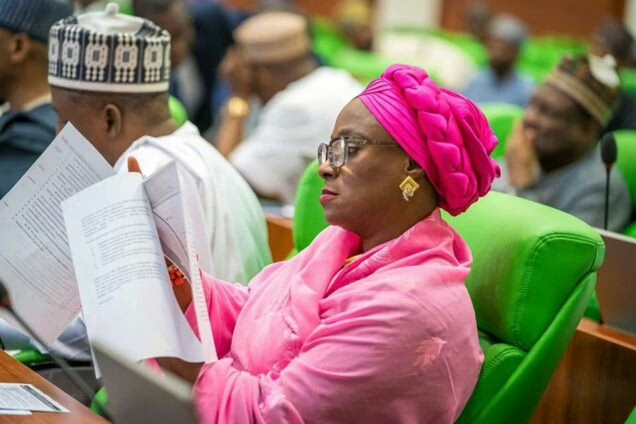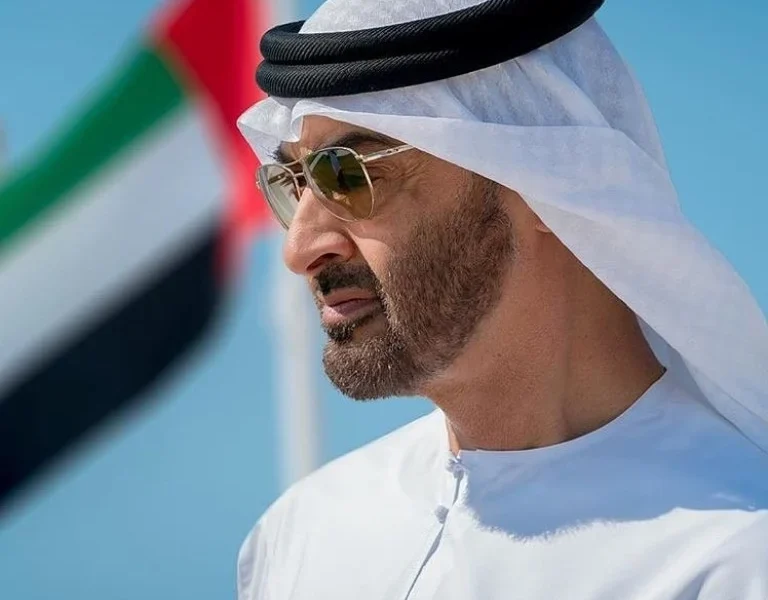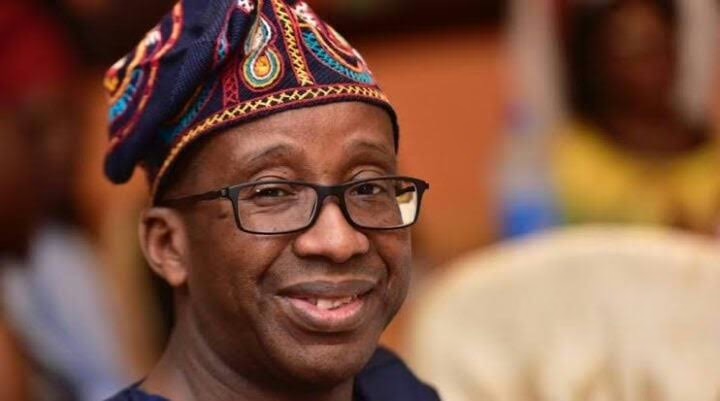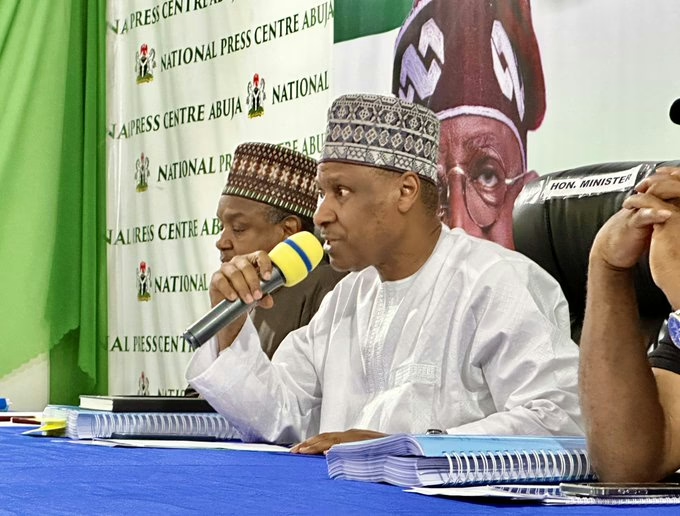Indications emerged on Saturday that the chief executive officers and other top executives of Deposit Money Banks had begun moves to raise fresh capital to bolster their respective institutions’ capital base in line with the pronouncement of the Governor of the Central Bank of Nigeria, Dr Olayemi Cardoso.
Sunday PUNCH gathered from top sources in the banking industry that the top executives might have also commenced preliminary merger and acquisition talks, as some of the big banks are eyeing some weaker ones for possible acquisition, while some middle strength and weak ones are looking for alliances that may result in mergers.
Cardoso had said in Lagos on Friday that the apex bank would be asking the DMBs to increase their capital base in order to service the $1tn economy projected by President Bola Tinubu.
Speaking at the 58th Annual Dinner of the Chartered Institute of Bankers of Nigeria where he was the special guest of honour, Cardoso said, “In my recent speech at the 370th Bankers’ Committee meeting, I highlighted the economic agenda of the President. The administration has set an ambitious goal of achieving a GDP of $1tn over the next seven years.
“Attaining this target necessitates sustainable and inclusive economic growth at a significantly higher pace than current levels. It is crucial to evaluate the adequacy of our banking industry to serve the envisioned larger economy.
“It is not just about its current stability. We need to ask ourselves, can Nigerian banks have sufficient capital relative to the finance system needs in servicing a $1tn economy in the near future, in my opinion, the answer is no, unless we take action. As a first test, the central bank will be directing banks to increase their capital.
“Therefore, we must make difficult decisions regarding capital adequacy. As the first step, the CBN will be directing banks to increase their capital.”
He added, “The removal of petrol subsidy and the adoption of a floating exchange rate and other government policies are anticipated to have a positive effect on the economy in the medium term.
“These measures are expected to enhance investors’ confidence, attract capital inflow, stimulate domestic investors and ultimately improve the level of external reserves. Additionally, they are expected to contribute to the stability of the local economy.
“Despite the challenging global and local economic environment, Nigeria’s financial sector has demonstrated resilience in 2023 with key indications of financial soundness largely meeting regulatory benchmarks.
“Stress test conducted on the banking industry also indicates its strength under mild to moderate scenario on sustained economic and financial stress. Although there is room for further strengthening and enhancing resilience to shocks. Therefore, there is still much to be done in fortifying the industry for future challenges.”
A bank CEO, who spoke to Sunday PUNCH, welcomed the CBN policy direction regarding the recapitalisation of the banks and said his institution was ready to raise fresh capital though it had yet to conclude the modality.
“Even before the CBN governor made the pronouncement, our bank was already considering raising fresh capital to significantly increase the capital base. This should happen in the first quarter of 2024. So, we are in tune with the CBN governor,” the CEO of a Tier-1 lender told one of our correspondents on Saturday.
In the last few months, First Bank of Nigeria Holdings, Wema Bank and Jaiz Bank have proposed Rights Issues, while Fidelity Bank announced plans to raise additional capital via the issuance of 13,200 billion ordinary shares via public offer and rights issue.
An executive director in a bank with regional presence told Sunday PUNCH on condition of anonymity that the announcement by Cardoso did not come as a surprise, but said the current state of the economy might make raising adequate capital a bit of a challenge, adding that his institution was planning to talk to others for possible merger.
When asked when the talks would begin, the executive director said preliminary discussions would begin this week, but such would be accelerated when the CBN releases the guidelines for the new capital base and how much would be considered as adequate.
Another top bank executive told one of our correspondents that lenders had been exploring merger talks on the periphery before now, but that would be escalated now and that the banks might look more towards institutional investors rather than raise money through public listing due to the current economic situation in the country.
The President, Association of Corporate and Marketing Communications Professionals in Banks, Rasheed Bolarinwa, advised members of the public to wait for the formal unveiling of the recapitalisation plan so as to know the detail.
He told Sunday PUNCH, “Why don’t you wait until this get actualised? Let us wait for a formal announcement with clear guidelines; until then, why not hold your breath.”
On insinuations that a fresh capital raise might shrink the industry, he said, “This observation may happen or not depending on how investors react when the banks go to the market. What is not in contention is that going by the performance of bank stocks on the Nigerian bourse, investors will be receptive to the banks if they approach the market to recapitalise.
“If you look at the capitalise base of some banks, are they not already overcapitalised? And what if those who choose to approach the market perform creditably due to investor confidence in bank stocks?
“The regulator is well resourced and knows what it needs to do at any point in time in managing Nigeria’s banking sector, including the recapitalisation process, which was mulled yesterday (Friday) in Lagos.”
Experts advise banks
The Chief Executive Officer, Centre for the Promotion of Private Enterprise, Dr Muda Yusuf, welcome the move to increase banks’ capital base, adding that the current capital base was grossly inadequate.
He said, “The minimum capital requirements of the banking industry need to be reviewed in the light of the considerable loss of value amid depreciating domestic currency. During the banking consolidation of 2004, the minimum capital requirement for banks was raised from N2bn to N25bn. The revised capital requirement was an equivalent of $187m. Today, the same N25bn is an equivalent of just $32.5m.
“This is a clear indication of the phenomenal erosion of the capital base of the banks. Recapitalisation of the banks has therefore become imperative. It is important to ensure that the capital base of banks can support their current exposures in the interest of the stability of the financial system.”
A professor of Capital Market at the Nasarawa State University, Uche Uwaleke, urged the CBN not to coerce banks into increasing their capital base as was the case during the last recapitalisation drive; rather, they should be incentivised.
“The idea of recapitalisation of banks is a welcome one. It goes without saying that capital is needed to finance big-ticket projects, especially when the government is targeting a $1tn economy in a few years’ time. But I think the strategy should be somewhat different from the approach adopted in 2005. It should be more about incentives than coercion,” he said.
Uwaleke, who is also the President of the Association of Capital Market Academics of Nigeria, added that a number of Deposit Money Banks were already making moves to increase their capital base.
He said, “Some DMBs (especially many in the FUGAZ category) are already making efforts to increase their capital base. The CBN can use prudential guidelines to strengthen the present tiered arrangements. The use of the CAR (the ratio of a bank’s capital to risk weighted assets) is a good example.
“The apex bank can also use differential cash reserve requirements as well as preferential participation in the forex market for well-capitalised banks as some of the incentives. For whatever it is worth, smaller banks playing at the regional level should not be regulated out of existence.”
Echoing Uwaleke’s stance, an economist and former Vice-Chancellor of the University of Uyo, Prof Akpan Ekpo, warned that the planned move might lead to mergers and acquisitions, creating unemployment, economic uncertainty and discouraging investors.
Rather, Ekpo said the banks should be incentivised to stay vibrant, adding, “Well, the central bank has to be careful because you don’t force banks to recapitalise. The last time this happened, there was a serious problem. You will have to give them incentives for those who will want to go through that process, but never should the apex bank force them to recapitalise.
“Otherwise, it will result in mergers and acquisitions, and that will create unemployment, adding to the already high rate in the country, which will send uncertainty and anxiety into the system. That is not good for the economy. The CBN governor talked about the plan by the current administration to create a $1tn economy, but don’t hound banks to recapitalise; rather, give them incentives.
“The last CBN governor printed so much money through Ways and Means. What they have to do is stick to the rule, which says that the CBN can only give the government five per cent of the previous year’s annual revenue. Once that is adhered to, there will be no issues, but I don’t think it’s a good idea to force banks to recapitalise.”
Another economist, Leo Ukpong, said bank recapitalisation meant raising the capital base through more borrowing or the issue of new equity of banks.
He said, “If additional funds are acquired from borrowing more debt, the debt level of the company will rise compared to equity. This could raise the default riskiness of such banks. If it’s done through the issuance of new stocks to investors, this will raise the equity ratio of the bank and spread future profit or loss among more investors. In other words, raising additional capital through new equity could reduce the default risk of banks.”
Listing the advantages of such a move, the financial economist stated that a raise in capital would imply more available funds for loans and private investments.
He explained, “More loans could be made to the private sector investors and the public sector for national infrastructural development, and for household consumer loans. It will help spread the lending or default risks among several investors and risks diversification.
“Also, it could be more of a window dressing to give the investors the impression that the bank is now larger and more stable.”
He, however, added a caveat that “all banks must channel the additional funds raised through recapitalisation to the capital projects and not lend the funds to state and federal governments to be used for buying SUVs for legislators and presidential yachts.”
A former Chief Economist at Zenith Bank Plc, Marcel Okeke, argued that before looking at the banks, the apex bank needed to look inwards at some of its policies, those of the Federal Government and their unintended consequences, which were casting a shadow over the economy.
Okeke said, “All that the CBN governor has said is right and he also acknowledged some of the policies, which will have unintended consequences on the economy. If care is not taken, that will preoccupy them for a long time. As we speak the government is battling with what we call the palliatives. Before the present government came in place, who was talking about palliatives? It shows that something is fundamentally wrong and they are just trying to patch things up.
“The journey to achieve a $1tn economy has not even started. The productive sector is dying. Look at the GDP growth rate for example. The real sector is functioning sub-optimally because of the policies that have been put in place. The CBN governor also mentioned the level of insecurity in the land. Has that been tackled? Handling insecurity is a precondition for other sectors to thrive in Nigeria. He also mentioned agriculture. Many of the farmlands are left desolate because of insecurity and other social ills. These things are tied together. It’s not just talking about the $1tn economy. The question is, how do you get there?”
Okeke also raised concerns as to how the economy would be able to support a recapitalisation drive.
He said, “On recapitalisation, banks are supposed to be sources of funding for activities or projects that will drive that $1tn economy. If the banks are financially strong, they will drive and contribute seriously to it. You can also imagine when all the banks are trying to meet capital in today’s economy.
“He (Cardoso) didn’t mention a timeline or set any deadline, so the race has started. I don’t know where the market will go with it. The economy has a trust deficit already. There are question marks all over the place. The CBN should be encouraging export and it has to be policy-driven.”
A professor of Development Economics, Abayomi Adebayo, faulted the recapitalisation plan, saying Cardoso should rather be worried about the foreign exchange market and concentrate more on how to facilitate productivity in the economy.
He further advised the CBN governor to engage intelligent people in the country on how to develop productivity, and an active financing of the economy, adding that entrepreneurship should be encouraged in order to solve the petrol problem by building internal refineries to tackle the crisis.
Adebayo stated, “I don’t know what he wants to achieve with that. Is it that the banks are distressed now? Where is he going to get the capital from? Is it the people who are still struggling to eat that will put money in the account now? What was our experience with the shares that we bought? All of us see it as not better than ordinary paper because of the amount that each clocked for that share and what they command in the market today. Who is the right-thinking person in this economy who will think of buying shares that cannot be guaranteed how it will turn out in the future buy what we have experienced before?
“Every step in economics has assumptions around it, but to me as a person, I feel he should bother about facilitating real sector productivity. Motivating and cultivating how the refined rate will wipe off the importation of refined fuel in Nigeria. These are issues that could remove pressure on dollars and others rather than looking for paper function on the table. You know there were some people speculating about redenomination. If you remove two zeros, is it the one that will produce in the economy? Is it decimalisation causing the naira to be falling? Is it the psychological feeling that the naira is big that you want?
“I thank God we have a government that is listening so that as we are bringing ideas; they are not the government that will just close their eyes and mind. That is why we should begin to think together because we are running an economy that is very complex and challenging so all of us must think to find direction to make sure things work.’
The don added, “I don’t know how successful that recapitalisation will be. If people who have stolen money think they can go and buy banks and begin to be proud that they are the owner of a particular bank now. I’m talking about over 80 per cent of salary earners who will say they want to buy shares when they haven’t eaten in their house and when fuelling their cars to work is very difficult.”
A professor of Economics at the Olabisi Onabanjo University, Sheriffdeen Tella, stated that a positive result would be achieved for the economy if the CBN governor could match words with actions.
Tella said, “What he has presented are the right things to do if he backs it up with action, the desired result will be achieved. The central bank under Emefiele engaged in rigid banking like giving loans and others. It is not the duty of the central bank. The banks created for that purpose are the Bank of Industry, Bank of Agriculture, and others. The central bank should have channelled the money through those banks and monitored them. The CBN under Emefiele gave out such loans and made noise on the difficulty of recovering the loans. In the first instance, it is not their duty to issue such loans.
On recapitalisation, he said, “There is a need to recapitalise and the CBN governor has said because inflation and depreciation have affected the initial capitalisation, there is a need to recapitalise and revalue to make them stronger and be able to compete globally.
“It depends on how the recapitalisation will be and how big the banks are, but some banks will still have to merge and others take over. Some others can absorb those that don’t have the opportunity of merger. Also, the central bank may carry the process out in such a way that all of them may not have the same capitalisation.”
A professor of Economics at the University of Uyo, Edet Akpakpan called on the CBN governor to do whatever was necessary to alleviate the sufferings of Nigerians.
He said, “I am sorry, I have not seen much seriousness in what he has said. He needs to show us the plan of what he wants to do and how he wants to go about it. It is not enough to roll out policy. I am happy he mentioned that he is working with the minister of finance and coordinating minister of the economy. They should both get solid economic teams in place and work together to set the economy in place to alleviate the suffering of common Nigerians.”











